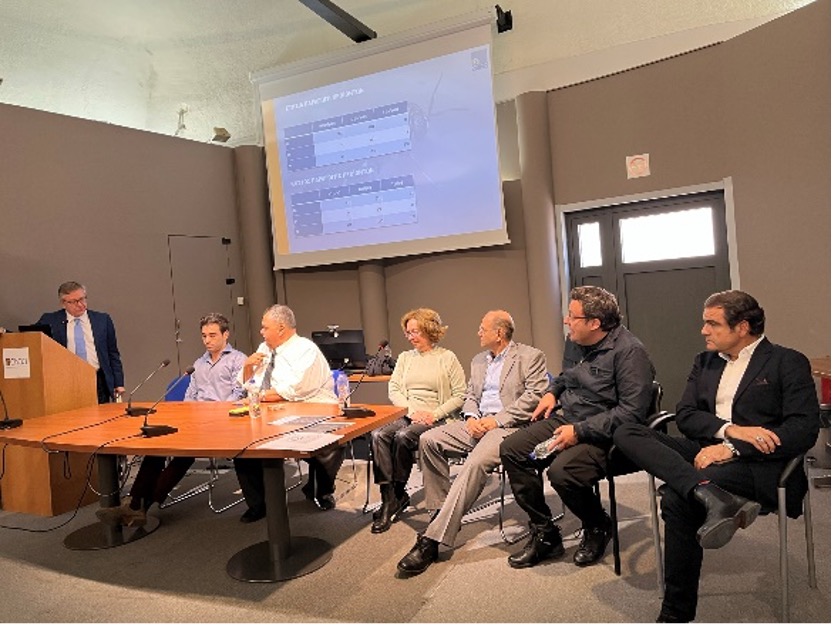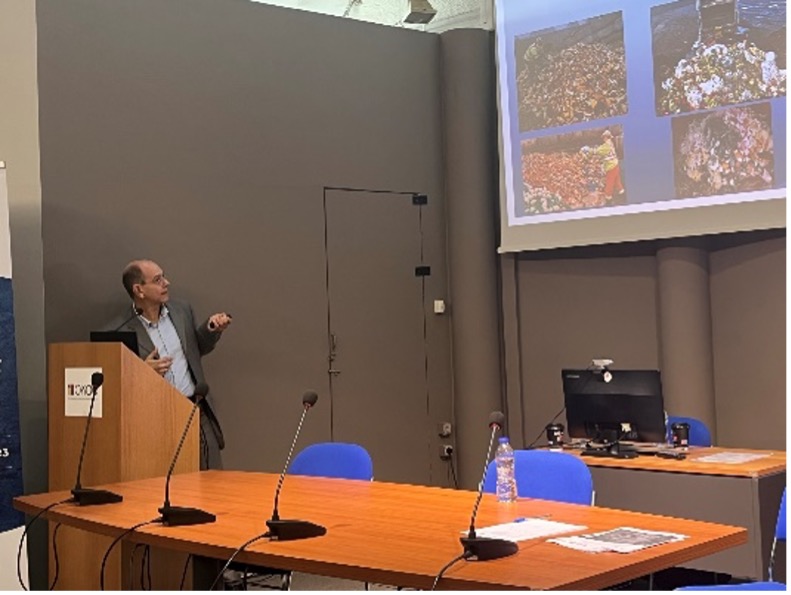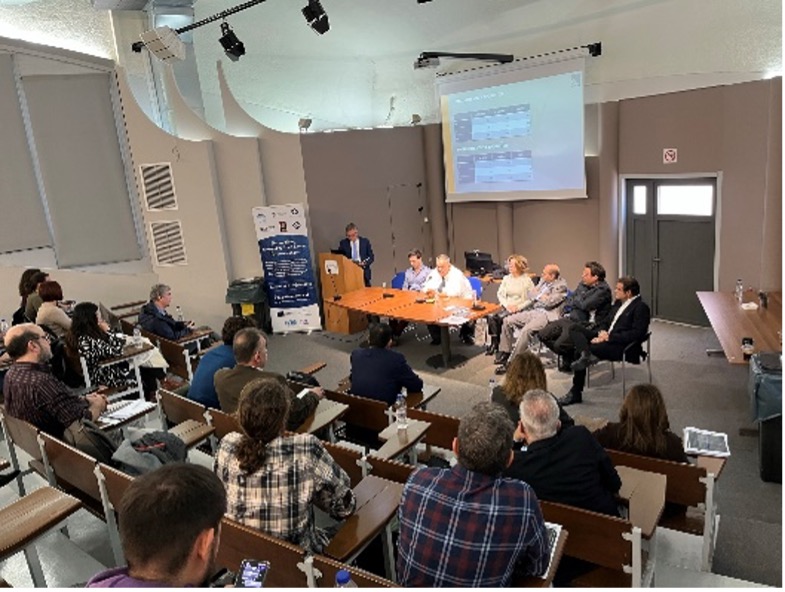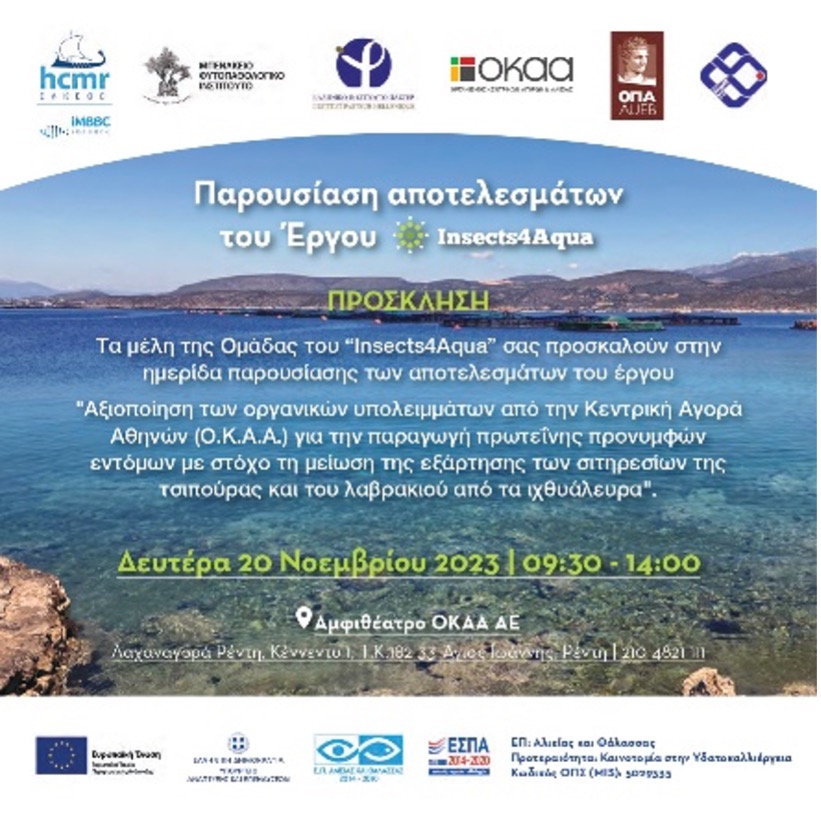On November 20th, 2023, the results of the “Insects4Aqua” research project were presented in the auditorium of the Central Markets and Fishery Organization of Athens (OKAA-CMFO). The project aimed to reduce the dependence of gilthead seabream (Sparus aurata) and European seabass (Dicentrarchus labrax) diets on fishmeal. To achieve this, the project partners thoroughly studied the utilization of organic residues from various vegetables and fruits traded in the CMFO to produce insect protein. The unutilized or spoiled vegetables and fruits were collected, recorded, and used to produce different substrates for the development of black soldier fly (Hermetia illucens) and yellow mealworm (Tenebrio molitor) larvae.
The larvae meals obtained from each of the tested substrates were then meticulously evaluated and the optimal meal from each insect species in terms of nutritional quality was selected to replace dietary fishmeal. The larvae meals were defatted and successfully substituted up to 60% of the fishmeal in the diets of seabream and seabass without any negative impact on fish growth performance. Additionally, the metabolism and immune response to those novel ingredients were examined. We also evaluated the potential of insect protein for mass production and the consumer’s perception.
 |
 |
 |
 |
This project was co-funded by the European Maritime and Fisheries Fund and National Resources from the Ministry of Rural Development and Food, under the Operational Program “Fisheries and Maritime 2014-2020.” The Laboratory of Fish Nutrition and Omics Technologies, of the Institute of Marine Biology, Biotechnology, and Aquaculture (IMBBC), coordinated this research project in collaboration with the Benaki Phytopathological Institute (BPI), the Hellenic Pasteur Institute (HPI), the Athens University of Economics and Business (AUEB) and Mitsakos Fish-Farm S.A.
The IMBBC is one of the three institutes of the HCMR, with headquarters in Heraklion, Crete, and facilities in Anavyssos, Attica, and Souda, Crete. With a staff of 111 people and 24 regular researchers, it undertakes research in marine biodiversity, genetics and genomics, and aquaculture.




